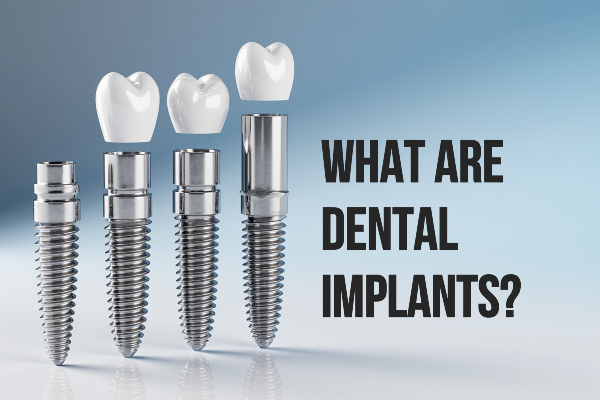The concept of a dental implant is a modern medical tool designed to replace missing teeth and restore both the function and aesthetics of the dental arch. The implant itself is a small, screw-shaped base, usually made of titanium or zirconia, and is surgically placed into the jawbone. It functions as an artificial tooth root, providing a strong foundation for a dental prosthesis.
Osseointegration of The Implant and Bone
The process of fusion between the implant and the bone is called bone integration. This stage determines the long-term stability and comfort of the implant.
Dental implants are placed not only for a beautiful and harmonious appearance but also for a comfortable feeling in the mouth. Implants are a widely used method because they are durable and provide a special function, preserving bone tissue and preventing the shifting of adjacent teeth over time.
From Consultation to a New Smile
The implant procedure consists of several stages, and patients often review dental implants before and after results to better understand the outcome. It begins with a detailed examination of the dental arch, including X-ray examination and 3D scanning, to assess the condition of the jawbone and create a plan for implant placement. If the jawbone cannot provide a stable base, the specialist performs bone grafting to form the necessary foundation.
The consultation stage is especially important, as it allows the specialist to understand the situation, and the patient gets the opportunity to discuss the condition and upcoming steps, as well as ask all questions about the procedure.
During the surgical phase, the implant is placed into the jawbone, where it heals and fuses with the bone over several months. This stage is known as osseointegration and is essential for the long-term stability of the implant. After full fusion, an abutment is placed, followed by a custom-made dental crown that gives the tooth its final appearance.
Common Types of Dental Implants and Dental Implant Cost
The types of implants are selected based on individual preference. The dental implant cost in Armenia depends on the chosen type. The most common include:
Endosteal implants are placed directly into the jawbone and are either screw-shaped or cylindrical, made from titanium or zirconia. These are preferred when the jawbone is strong.
Subperiosteal implants are placed on top of the bone but under the gum. They are designed for cases where the patient lacks sufficient bone tissue and either cannot or does not want to undergo bone grafting.
Zygomatic implants are specially designed implants that are placed in the zygomatic bone instead of the upper jaw. They are used when there is very little bone volume in the upper jaw, making other methods impossible.
Contraindications for Dental Implants
Dental implantation is not recommended for all patients, and in such cases, it is important to discuss with the doctor what alternatives to dental implants may be considered. This is because there are several absolute and relative contraindications that must be considered before implantation, such as bleeding disorders, immune deficiencies, certain psychiatric conditions, active cancer, and uncontrolled systemic diseases such as tuberculosis or severe diabetes. Implant placement is also contraindicated during pregnancy.
Causes of Implant Inflammation and How to Prevent It
Dental implants are a highly successful product in dentistry, but some patients may develop implant inflammation. This process is known as peri-implantitis or mucositis. A common cause is poor oral hygiene, which promotes the accumulation of bacteria and infection of the surrounding tissues. Risk factors include smoking, teeth grinding or clenching (Bruxism), incorrectly placed implants, and, in rare cases, allergic reactions to implant materials.
If you notice gum redness, swelling, bleeding, pain, or pus discharge after getting an implant, contact a specialist, as these are signs of inflammation.
Conclusion
At Implantum Stomatology Clinic, the full dental implant process includes several stages – starting with tissue restoration (if needed), through to the placement of the metal implant, and the final prosthetic work.
The procedure is performed under local anesthesia, so the patient feels no pain. The recovery process is often faster than after tooth extraction. The clinic uses modern implant systems that ensure high efficiency and minimal complications.
The dental implant cost depends on the type of implant and the complexity of the procedure. Depending on the condition, other dental services may also be required.
You can contact the Implantum Stomatology Clinic by visiting 46/2 Arshakunyats Ave. or 48 Komitas Ave., or through the official website: https://implantum.am/․
